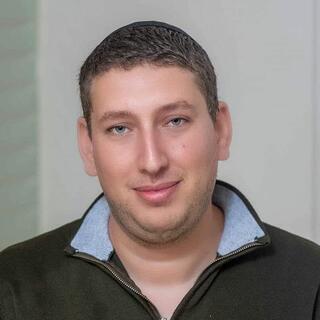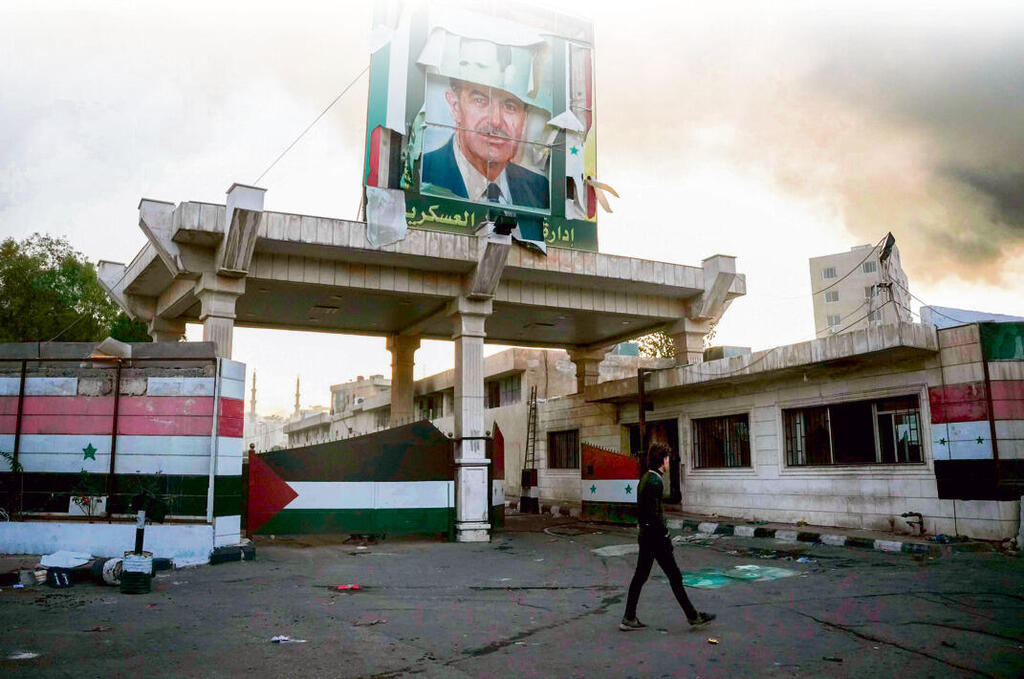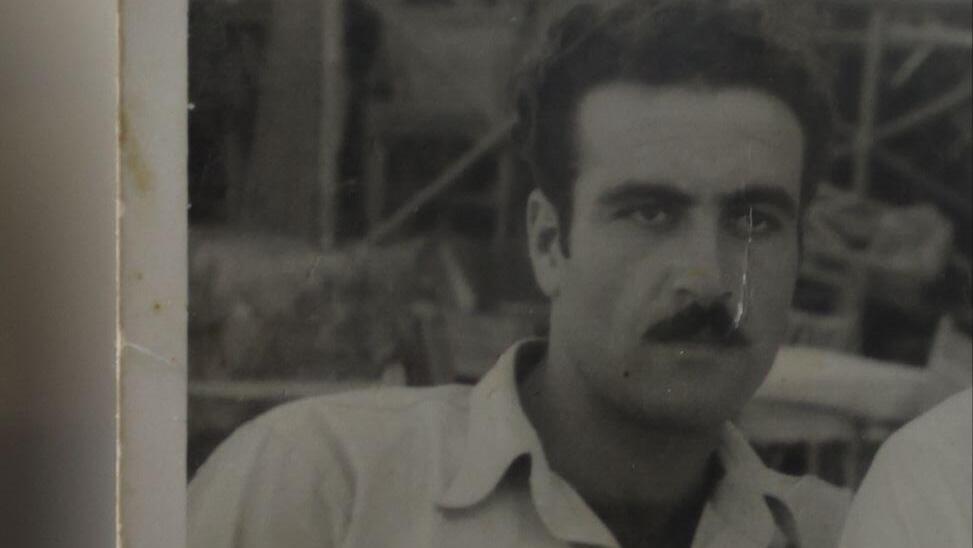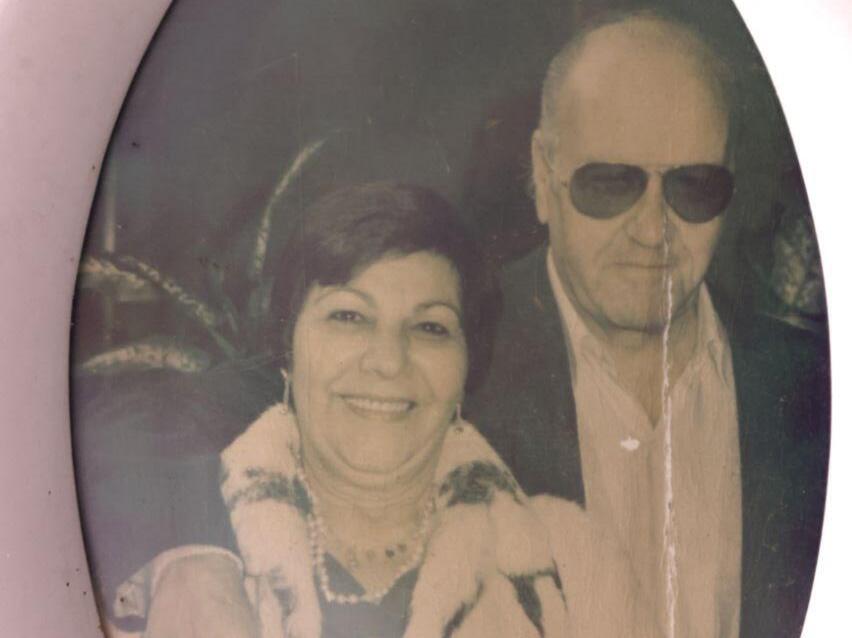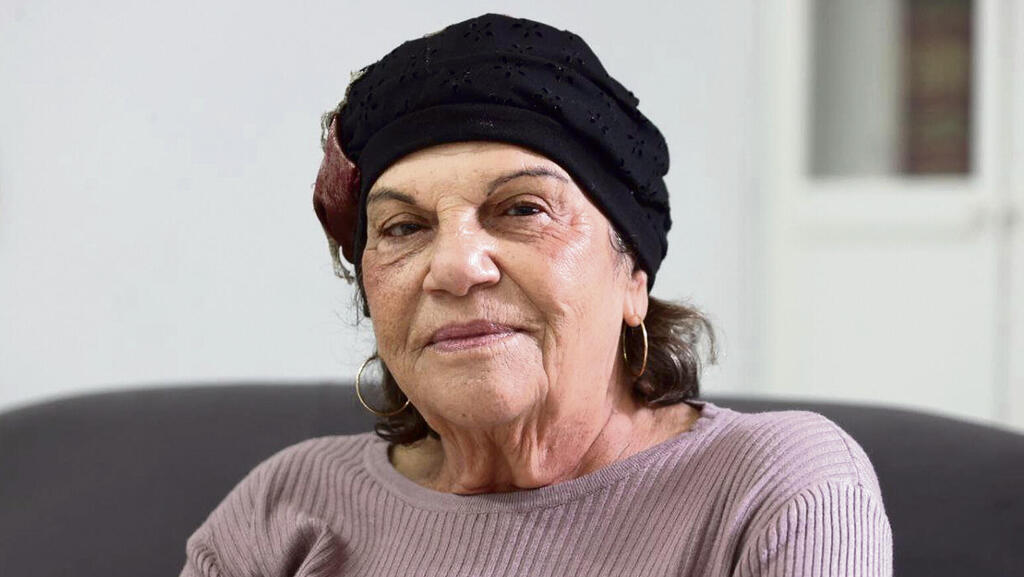Great joy and significant relief have been felt in recent days following the fall of Bashar Assad's regime in Syria. Political prisoners held in its brutal detention facilities have been freed, the regime's opponents who endured harsh oppression have breathed easier and the end of a cruel tyrant's era has been celebrated around the world. The news was also welcomed warmly in Israel, with many families marking the occasion in personal ways.
Yaffa Levy has always felt the heavy burden her father, Marco (Mordechai) Khalifa, carried after enduring Assad's regime. "It’s a shame my father isn’t here to witness this meaningful closure," says Yaffa, born to a father who made aliyah from Syria and a mother, a soldier in the Irug (Jewish paramilitary groups in Mandatory Palestine) from a deeply rooted Israeli family.
Syrian rebels leader reaching Damascus
"My father was born into a wealthy family in Syria. They owned a nigella seed factory and lived well. His name was Mordechai Cohen, but he changed it to Marco Khalifa to hide his Jewish identity from Muslims. At 16, he left Syria for Lebanon, where he was tasked with smuggling Jews from Syria to Israel.
He did this for almost 20 years, starting in the early 1950s, using trucks to sneak them through the Golan Heights. Assad's men eventually caught on. As punishment and to set an example, they imprisoned and tortured Marco’s father, Yitzhak-Zaki Khalifa."
After his father’s arrest, Marco was asked to return to Syria to rescue a prominent and wealthy Jewish family. "My father was here in Israel," Yaffa recounts. "They sent an Arab man from Jaffa, a father of eight, to accompany and monitor him, warning that his children would be harmed if anything happened to my father. They were his guarantee.
“My father disguised himself as an Arab and arrived at his mother's home in Syria, initially pretending to beg for charity and food. He asked to stay the night and then revealed that he was her son. Years had passed since they parted. At first, she didn’t recognize him, but when he told her, she said, 'Leave this place, return to Israel immediately and never come back.'”
“She told him they had tortured his father in prison and gouged out his eyes. She feared he’d meet the same fate. My father was a Zionist. He returned to Israel, fought in all the wars, served in the army as both a conscript and reserves, participated in the liberation of the Western Wall in Jerusalem and started a family,” she says.
“But he always carried the weight of what happened to his father. Coupled with longing for his mother and the family he left behind, it was a burden he carried to his last day."
Marco passed away over 30 years ago and didn’t live to see the regime’s fall. However, his family feels that they finally gained closure. "We were overjoyed," Yaffa says. "We saw how much it pained him, so this is a great relief for us."
The Assad regime, both father and son, was hostile to Jews — not only those with Zionist aspirations like Marco Khalifa, who helped Jews reach Israel. "The regime viewed all Syrian Jews as hostages," explains Prof. Yaron Harel from Bar-Ilan University's Department of Jewish History and Contemporary Jewry, who studies Jewish communities in Islamic countries during the modern era.
"During the reign of both Assads, no Jew identified publicly as Zionist. But every Jew was a Zionist to the Syrians.”
"On one hand, the Assad regime protected Jews from harassment by Palestinian refugees who arrived in Syria after 1948 and 1967, aiming to maintain order and stability. But the regime itself persecuted them,” Harel added.
“After 1948, the Syrian government restricted Jews in employment, culture and education. Significant communal and personal assets were confiscated, bank accounts frozen and Jews were barred from delivering money abroad or working in public-sector jobs. Nearly all Jewish schools were closed.”
Get the Ynetnews app on your smartphone: Google Play: https://bit.ly/4eJ37pE | Apple App Store: https://bit.ly/3ZL7iNv
“Following Eli Cohen’s (Jewish spy who infiltrated the highest ranks of the Syrian regime in the 1960s) arrest in 1965, the threat of sudden arrests loomed constantly and people began disappearing. After the Six-Day War in 1967, the situation deteriorated further.” He explained.
“ Community funds were seized, freedom of movement was entirely revoked and police stationed at the Jewish quarter's entrance prevented any movement. Hafez Assad allowed Jews to leave Syria on the condition they took no property and didn’t go to Israel. This led to the eventual exodus of Syria’s Jewish community, leaving no Jewish presence behind."



